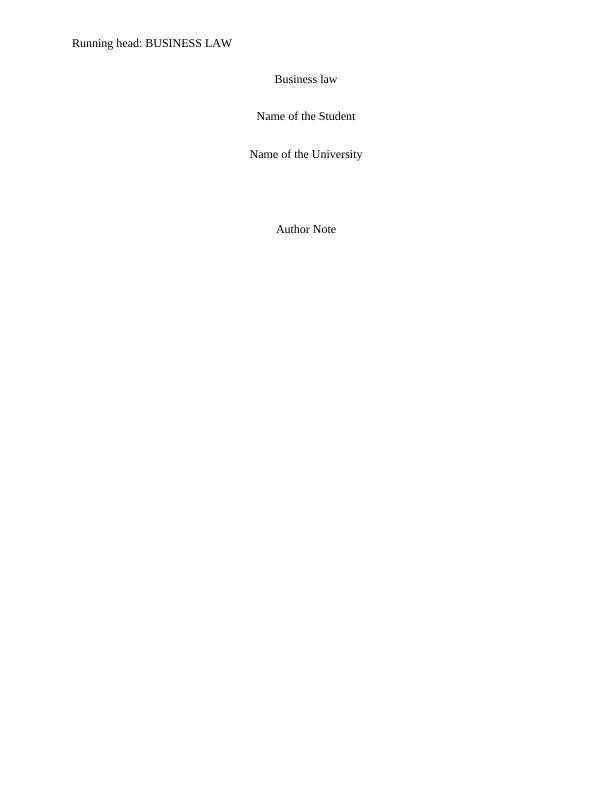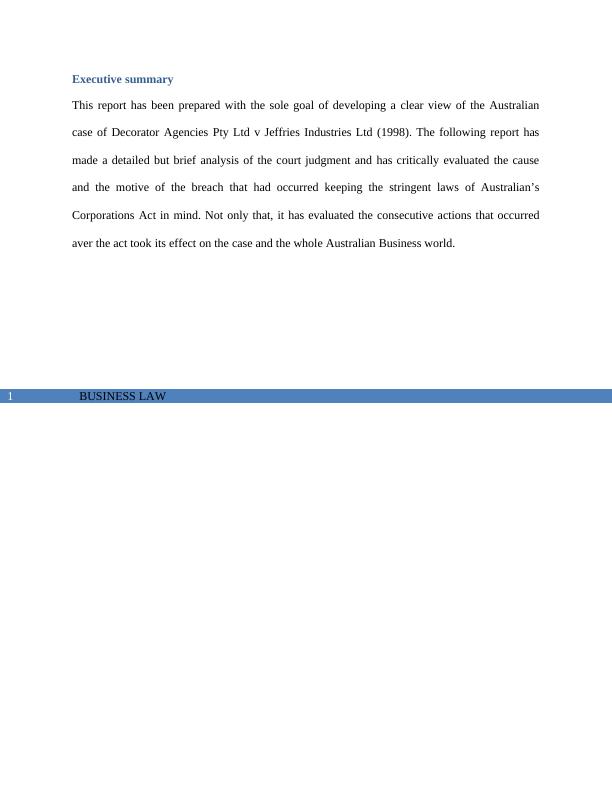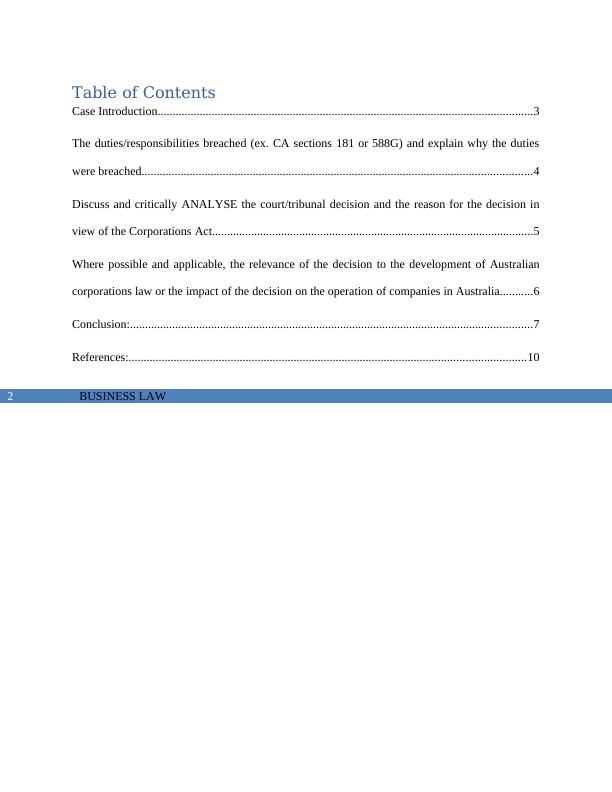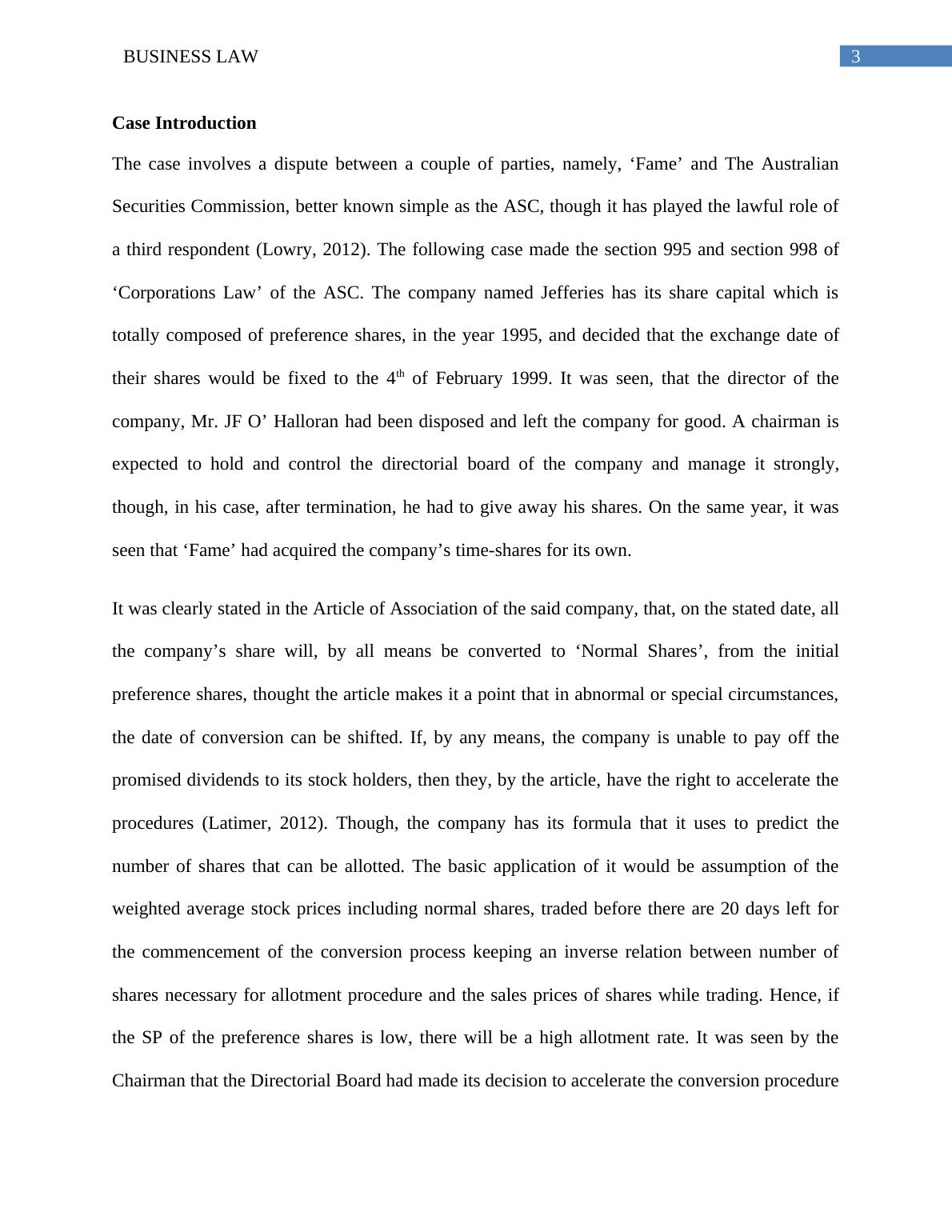The Australian case of Decorator Agencies Pty Ltd v Jeffries Industries Ltd
12 Pages2750 Words178 Views
Added on 2020-03-23
About This Document
The following report has made a detailed but brief analysis of the court judgment and has critically evaluated the cause and the motive of the breach that had occurred keeping the stringent laws of Australian’s Corporations Act in mind. 4 Discuss and critically ANALYSE the court/tribunal decision and the reason for the decision in view of the Corporations Act 5 Where possible and applicable, the relevance of the decision to the development of Australian corporations law or the impact of the decision on the operation of companies in
The Australian case of Decorator Agencies Pty Ltd v Jeffries Industries Ltd
Added on 2020-03-23
ShareRelated Documents
End of preview
Want to access all the pages? Upload your documents or become a member.
Fame Decorator Agencies Pty Ltd v Jeffries Industries Ltd Assignment
|9
|2758
|173
Assignment on Business Law Jefferies Industries Limited
|12
|3088
|56
The North v Marra Developments Ltd
|10
|2640
|247
Overview of Company Law Assignment
|10
|2099
|106
Business Law Assignment - Case Analysis ASIC v Citigroup Global Markets Australia Pty Ltd
|11
|2857
|109
Fame Decorator Agencies Pty Limited v Jeffries Industries Limited and Ors
|7
|2017
|223




